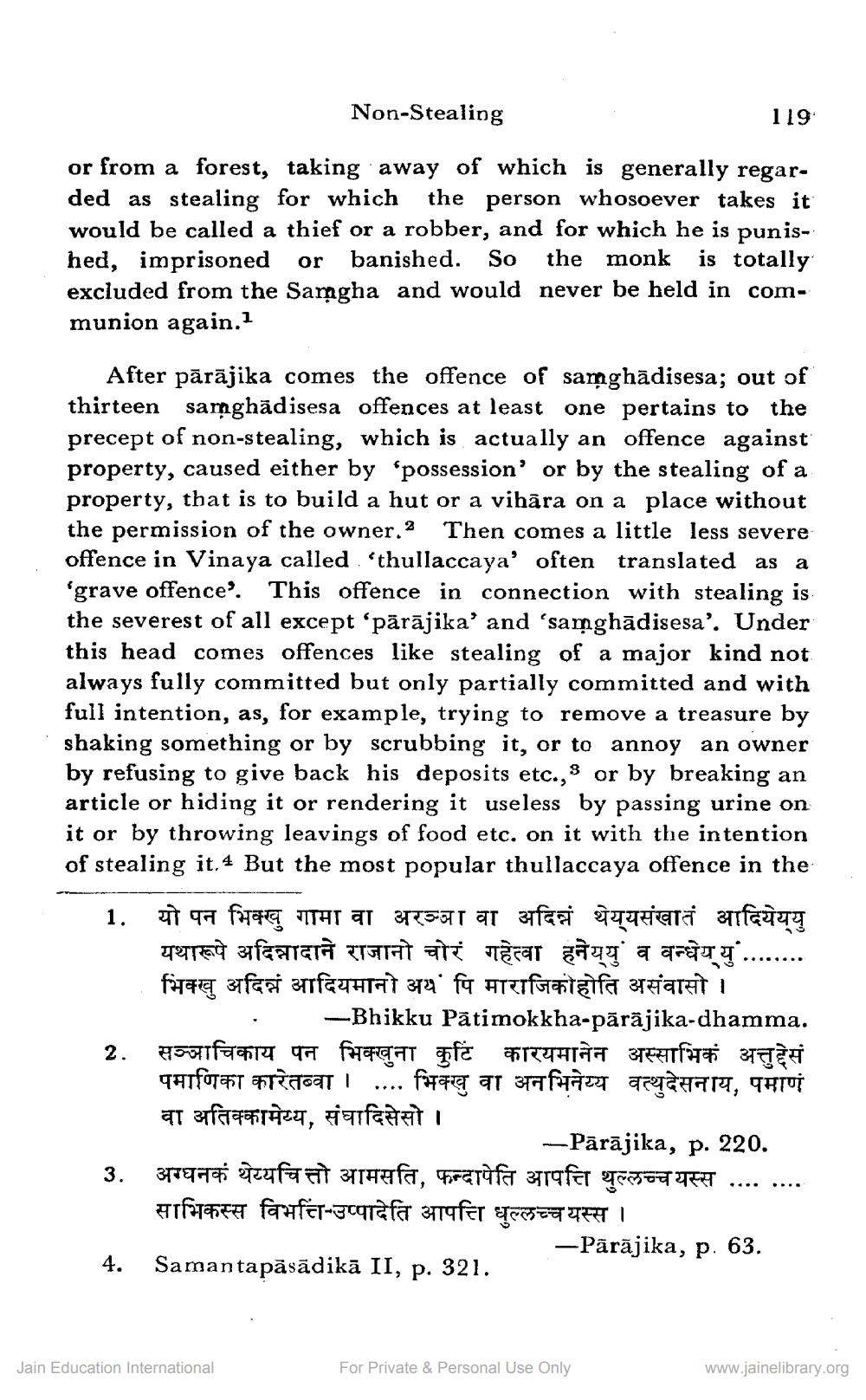________________
Non-Stealing
119
or from a forest, taking away of which is generally regarded as stealing for which the person whosoever takes it would be called a thief or a robber, and for which he is punished, imprisoned or banished. So the monk is totally excluded from the Samgha and would never be held in communion again.2
After pārājika comes the offence of samghādisesa; out of thirteen samghādisesa offences at least one pertains to the precept of non-stealing, which is actually an offence against property, caused either by 'possession' or by the stealing of a property, that is to build a hut or a vihāra on a place without the permission of the owner.2 Then comes a little less severe offence in Vinaya called 'thullaccaya' often translated as a 'grave offence. This offence in connection with stealing is the severest of all except ‘pārājika' and 'samghādisesa'. Under this head comes offences like stealing of a major kind not always fully committed but only partially committed and with full intention, as, for example, trying to remove a treasure by shaking something or by scrubbing it, or to annoy an owner by refusing to give back his deposits etc., 8 or by breaking an article or hiding it or rendering it useless by passing urine on it or by throwing leavings of food etc. on it with the intention of stealing it. 4 But the most popular thullaccaya offence in the
1. यो पन भिक्खु गामा वा अरआ वा अदिन्नं थेय्यसंखातं आदियेययु
यथारूपे अदिन्नादाने राजानो चोरं गत्वा हनेययुव वन्धेय यु. भिक्खु अदिन्नं आदियमानो अयपि माराजिकोहोति असंवासो ।
. -Bhikku Pātimokkha-pārājika-dhamma. 2. साचिकाय पन भिक्खुना कुटिं कारयमानेन अस्साभिकं अत्तुद्देसं
पमाणिका कारेतब्वा । .... भिक्खु वा अनभिनेय्य वत्थुदेसनाय, पमाणं वा अतिक्कामय्य, संघादिसेसो।
-Pārājika, p. 220. 3. 3f79ai stufe at thefa, fratofer 37rafet essa TET .... .... साभिकस्स विभत्ति-उप्पादेति आपत्ति धुल्लच्च यस्स ।
- Pārājika, p. 63. 4. Samantapāsādikā II, p. 321.
Jain Education International
For Private & Personal Use Only
www.jainelibrary.org




